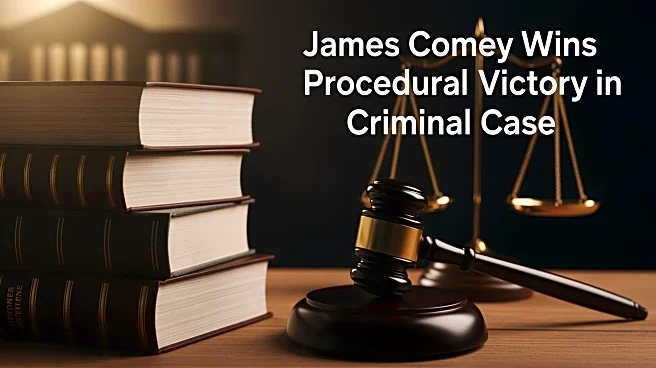What's Happening?
Former FBI Director James Comey has achieved a procedural victory in his criminal case before the U.S. District Court for the Eastern District of Virginia. Judge Michael S. Nachmanoff denied the Justice
Department's request to impose broad limits on how Comey's defense team can access and share discovery materials. The ruling rejected the government's proposed protective order, which was deemed 'insufficiently specific' and unnecessarily hindered Comey's ability to prepare for trial. Instead, the court adopted Comey's narrower proposal, allowing more defined access to discovery materials. This decision marks an early turning point in the case, raising questions about transparency and prosecutorial authority in politically sensitive cases.
Why It's Important?
The ruling in United States v. Comey could influence how federal prosecutors handle sensitive evidence and appointments across the government. By challenging the legitimacy of the U.S. Attorney's appointment and rejecting broad secrecy requests, the case highlights issues of transparency and fairness in politically charged prosecutions. The outcome may affect not only Comey's defense strategy but also set precedents for future cases involving high-profile defendants. The decision underscores the balance between government confidentiality and a defendant's right to access evidence, potentially impacting prosecutorial practices nationwide.
What's Next?
Comey's legal team plans to file a motion challenging the legality of the U.S. Attorney's appointment in the Eastern District of Virginia, which will be submitted on October 20, 2025. This move will prompt reassignment of the issue to an out-of-district judge under federal law. The judge will decide on the validity of the prosecutor's appointment, which could lead to dismissal or reassignment of the indictment. Meanwhile, discovery will continue under the court's newly adopted protective order, allowing Comey broader access to evidence while maintaining confidentiality of certain materials.








